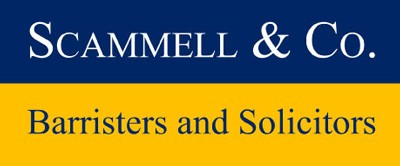Traffic Offences
Traffic (Driving) Offence Lawyers – Adelaide
Unfortunately, our criminal lawyers do not have capacity to give advice and assist drivers who receive expiation notices for driving offences, unless they:
1). Admit the offence (s);
2). The loss of demerit points the offence(s) attract will lead to the driver being disqualified from driving;
3). There were mitigating circumstances that surrounded and explained the driver’s manner of driving.
In such a case we can assist you with an application for reduction of demerit points for the offence(s).
A Scammell & Co lawyer can also represent clients charged with driving whilst suspended, driving whilst disqualified, and driving without renewing your licence after a disqualification period ends (which are classified as criminal matters and attract either a term of imprisonment and/or a 3 year disqualification period).
We can also represent clients charged with the following traffic offences:-
- Drink driving (DUI);
- Drug driving (DUI);
- Driving without due care; and
- Dangerous driving and associated driving offences that may be laid on the same information.
For urgent enquiries about any of the above matters we can assist you with, please contact:
Senior Solicitor, Steven Zogopoulos: 0422 055 968
Our professional and experienced Traffic Offences team is ready to assist you…
See also:
Frequently Asked Questions
Click on the questions below to reveal the answer.
Can I avoid Speed Cameras / Traffic Light fines?
If you want to defend or appeal against a fine for a traffic offence or to avoid loss of demerit points you MUST NOT PAY THE FINE and you should seek urgent legal advice. Defending a speed camera or traffic light camera fine generally requires you to show that the Police equipment may be inaccurate.
We may still be able to help you avoid demerit points even if you cannot dispute the fine.
Can I reduce Demerit Points?
If you accumulate 12 or more demerit points in any three year period, you will be disqualified from driving (based on the offence date).
If you were not the driver of the vehicle when the offence occurred you should complete the Statutory Declaration provided with the fine notice. The fine and demerit points will then generally be transferred to the actual driver.
Demerit points are allocated to a range of traffic offences against the Road Traffic Act S.A. and the Australian Road Rules.
A ‘good behaviour’ bond option is first available when 12 demerit points are reached, but if you breach this bond your licence will be disqualified for twice the original disqualification period.
In limited cases you can apply to have the number of demerit points reduced.
What happens if I am caught Driving whilst Disqualified or Suspended?
In some circumstances it is possible to submit to a Court that a person should not be imprisoned and that there are good reasons to suspend any term of imprisonment.
What if I am charged with Drink Driving?
If you are found to be driving a motor vehicle with an excessive amount of alcohol in your blood (over .05) you will be charged with an offence.
The law now allows the Police to immediately disqualify you from driving where you are suspected of committing a drink driving offence. (This can also occur if you are charged with a Refuse to Submit to an Alcohol or Breath Test).
In some circumstances it is possible to make an application to the Court to revoke any immediate disqualification imposed by the Police, pending the resolution of the matter.
If sentenced for these offences, you are likely to incur a fine and licence disqualification. In some circumstances you can also be imprisoned. We can help you to explain to the Court why you were driving in this manner and why you should receive a minimal fine and the shortest possible licence disqualification period.
What will Scammell & Co achieve for me?
We can provide a fearless and comprehensive defence to any charges laid against you. Where you concede to a charge we will work to persuade the Prosecution and the Court that a low penalty should be imposed. We provide realistic advice.
I have just lost my licence for drink driving. Can I get permission to drive for work purposes only?
I have received an expiation notice and want to challenge it. What should I do? If I pay the fine, will I lose my licence?
I have just had my first court appearance and the matter has been adjourned (put off to another date). Am I still on Bail?
If you are on bail, it is very important that you follow all of your bail conditions including attending every court hearing in your matter. Breaching your bail conditions is a criminal offence punishable by imprisonment. If you wish to have anything altered on the bail agreement – for example, you want to move house and change your bail address – you will need a solicitor to make a formal application to the court to vary your bail. We can explain your bail conditions to you.
Mouth swab / DNA tests – should I agree?
I have been charged and asked if I would like to provide a statement. Should I do this?
We are able to obtain statements, notes, CCTV footage, forensic test results and other evidence from prosecution in relation to your matter. It is important we review that material prior to obtaining your final instructions.
I have a trial at the Magistrates Court, will there be a jury?
What are the penalties for youth offenders?
There are many different penalty options for youth offenders. Often youths in criminal matters are ordered to attend a Family Conference. This will involve the youth’s family, the police and possibly the victim(s) of the offence(s) who meet to discuss what penalty, should be imposed. Officially all that will be recorded on your son’s record would be Family Conference. There are other options such as a formal caution, or “without conviction” that we can discuss with you. In more serious matters an obligation to be of good behaviour or a period of detention is possible – even though your child is under the age of 18 years.
The final decision on penalty is up to the Magistrate. However, if your solicitor has negotiated with Prosecution regarding the desired outcome, any agreement can be helpful in persuading the Magistrate as to what should be imposed as a penalty. Therefore, we suggest that you obtain advice from one of our solicitors at the earliest possible opportunity.
See also:



